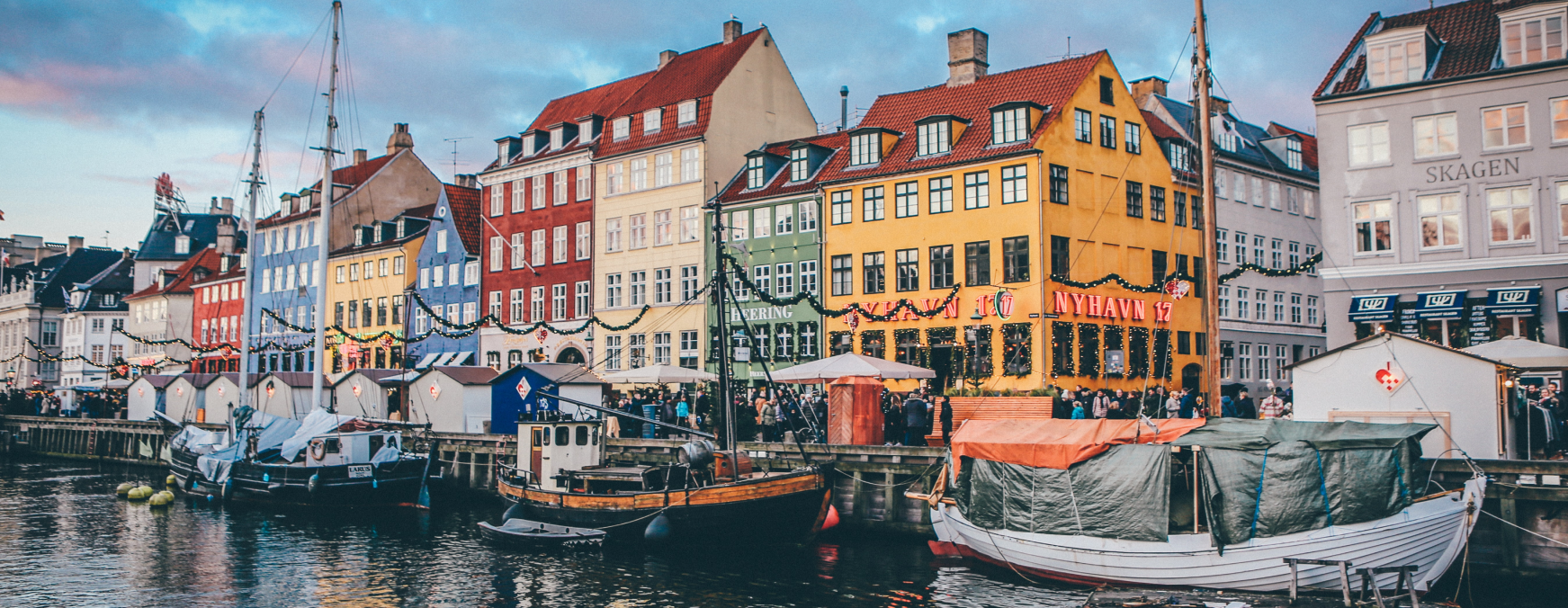Study Abroad> Denmark
Universities in Denmark
University of Copenhagen
Aarhus University
Technical University of Denmark
Aalborg University (AAU)
Roskilde University
Design School Kolding
Aarhus School of Architecture
UCL University College
Tips to navigate as an international student in Denmark

Are you thinking of studying in Denmark? If so, you’re in for a treat! Denmark is one of the most popular study destinations in Europe, and for a good reason. Denmark is a great place to live, the cost of living is relatively low, the quality of life is high, and it ranks high on the happiness index.
Tuition Fees
Studying in Denmark is free of charge for citizens of the EU/EEA and those with a Danish permanent residence permit. Annual Tuition fees for non-EU/EEA students range between USD 8,000-21,000 / Euro 6,000-16,000 (DKK 45,000-120,000).
Transport & Movement
Moving around Denmark is relatively easy because curiously, there are no mountains making it a biker’s heaven with most of the country being relatively flat. Most international students opt for public transport as their main means of traveling. If you’re attending a university in an urban area, you’ll likely find that the city offers a variety of transportation options, including buses, trains, metro systems, and trams.
Accommodation
If you are looking for student accommodation, they can vary depending on the town or city you reside in. In some cases, you can find people looking for roommates; some may be international students like yourself. These are usually shared common areas, for example, the kitchen, bathroom, and living room.
Food
Whether you’re looking for traditional Danish dishes or international cuisine, you’re sure to find something that sparks your taste buds. The National Dish of Denmark is a simple and tasty combination of crispy pork, potatoes, and parsley sauce. Danes are very healthy and they love fruits and vegetables, this definitely shows in the foods they choose to eat.
Street Food Markets are great places to enjoy great food with the locals and they really give you a bang for your buck. Reffen Street Food is one of these markets you can pass by if you are in and around Copenhagen. The Bridge Street Kitchen where you can enjoy your nice meal by the riverside & Elsinore Street Food Market.
Clothing
When it comes to clothing, you’ll want to make sure you pack a few essentials to fit in with the Danish style. Denim, t-shirts, cardigans, and boots are all popular styles here. You’ll also want to bring some warmer items; while the summers can be quite mild, winter temperatures in Denmark can drop significantly! Invest in a coat and a few layers that you can throw on when needed. Some stores where you can get affordable clothing are H&M, Miinto & Trendsales.
Weather
Before you decide to study in Denmark, you should know that the weather can be a big factor. The country has a temperate climate, which means it can get quite windy and rainy. In the summer (June to August) the average temperature is around 19 degrees Celsius (66ºF) while in the winter months (October to April) it can drop to 0 degrees Celsius (32ºF). Snow can be seen often during late autumn and winter.
Social Life
As an international student studying in Denmark, you will have plenty of opportunities to get involved with the local culture and make some lasting friendships. With a wide range of student societies, clubs, and organizations to choose from, you can easily find something that interests you. Remember to stay safe while socializing and if possible plan your route home in advance.
Work
As an international student, it’s possible for you to work in Denmark as you are pursuing your studies. However, there are restrictions on how many hours you can work each week. Generally speaking, you are allowed to work up to 20 hours per week while studying and full-time during the school holidays.
Ready to start your journey to study, work and live abroad?
Fill out our form to get started.
